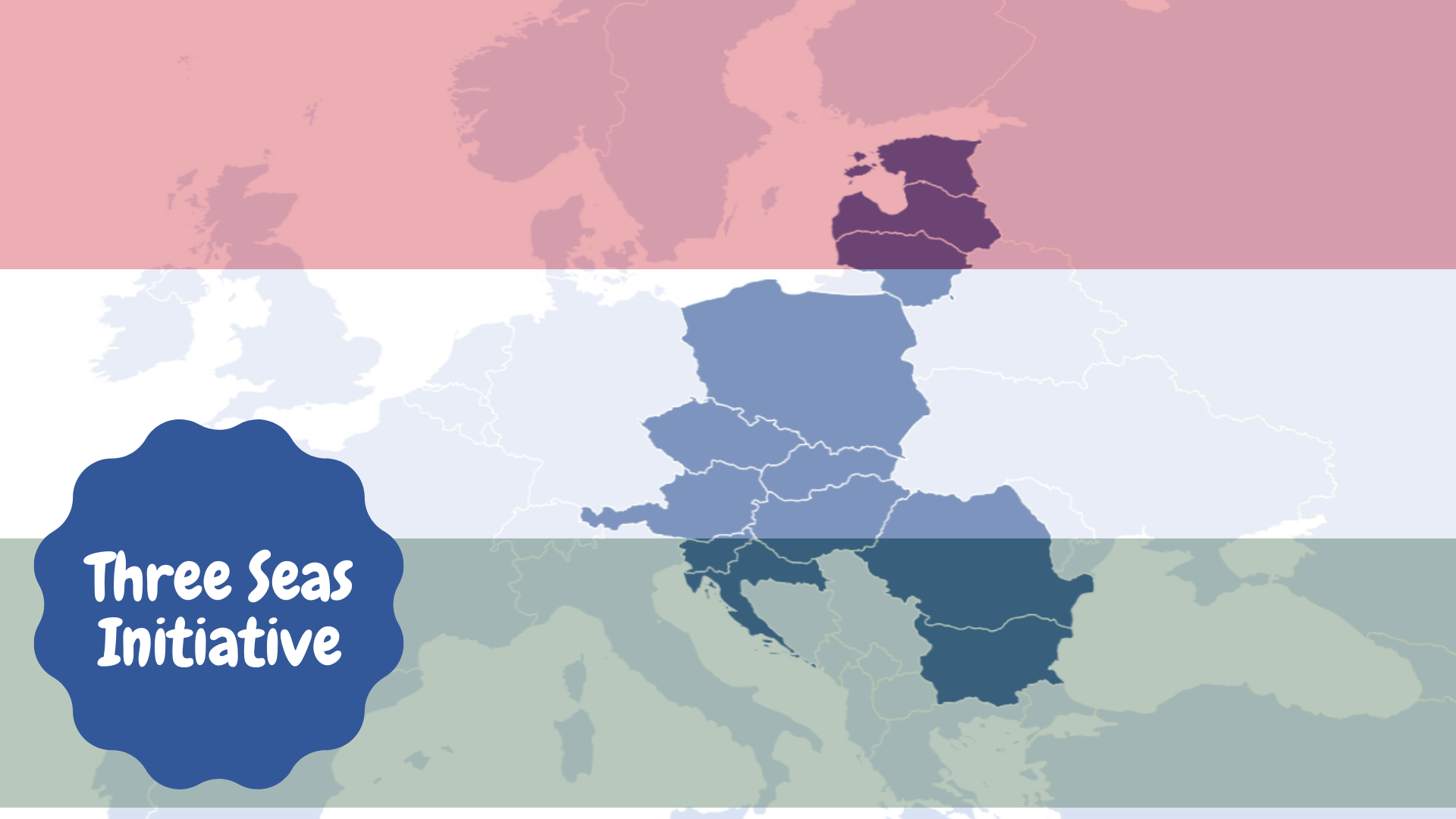Three Seas Initiative
Hungary's Perspective on the Three-Seas-Initiative

An initiative that strives to improve regional infrastructure, especially in the energy sector, and promoting economic development fits very well into Hungary's current foreign policy. In fact, Hungary would like to strengthen cooperation among Central and Eastern European countries in the future. While the existing Visegrád Group remains its priority, Hungary wants to promote the Three-Seas-Initiative as a complement to this group, as the new initiative also includes other countries from Central and Eastern Europe, such as Austria and Romania. The initiative is also intended to exist in parallel to the EU. While some member states fear rivalry between the initiative and the EU, Hungary is unconcerned – it does not see any reason for conflict between the project initiated by Poland and Croatia and the European Union. Hungary would like to deepen the Three-Seas-Initiative and expressed its desire for a more formal organizational structure of the initiative, which so far bears the closest resemblance to an intergovernmental forum.
Hungary’s intentions and aspirations
Despite the desire to institutionalize the initiative, Hungary sees the Three-Seas-Initiative primarily as an economic project. Hungary's primary objective as a member of the initiative is to strengthen its own competitiveness through improved infrastructure and closer economic cooperation in the region. Hungary does not seem to perceive the initiative as a political institution, which could explain why Hungary sees no conflicting interests between the initiative and the existing EU. Nevertheless, it cannot be ruled out that Hungary has no political intentions with the initiative officially but will in the future push for the politicization of the organization in order to instrumentalize it in Hungary’s power struggle with the EU. In contrast to other member states of the Three-Seas-Initiative, especially the Czech Republic and Slovakia, Hungary makes less effort to emphasize that the initiative must be in harmony with the EU. Instead, Hungary highlights that the Visegrád Group, in which it also participates, has priority and that the new initiative must exist exclusively as a complement to the group. The Three-Seas-Initiative is seen as being particularly useful for cooperation with non-Visegrád countries (Dostál et al., 2021).
The initiative is primarily intended to promote regional energy infrastructure and diversification, which is expected to lead to greater independence from Russia and Russian gas. In summary, Hungary is pursuing the following foreign policy goals within the initiative: to strengthen regional economic cooperation, to improve infrastructure, to diversify energy resources, to level the economic East-West divide in Europe, to boost the competitiveness of Eastern Europe, and to improve relations with its neighbouring states, for example Romania (Dostál et al. 2021). Slovak-Hungarian and Romanian-Hungarian relations are indeed still strained. Cooperation between these countries in the Three-Seas-Initiative could not only improve their interstate relations, but would also allow Hungary to gain more influence in the region. Hungary's current foreign policy course is not only aimed at more independence and autonomy, Hungary also wants to strengthen its own political position in the Eastern European region (Héjj, 2017). The Three-Seas-Initiative is proving useful to achieve these goals – to Poland's annoyance. However, it is not yet clear whether Hungary will challenge Poland's central role in the initiative. The two states have clashed many times in the past due to their opposing positions on Russia (Górka, 2018).
Relations with Russia, China and the USA
While the two countries do not agree on a shared stance on Russia, both countries are currently in conflict with the EU, which accuses them of deliberate de-democratization. This unmistakably shows that there is by no means unity among the Three-Seas-Initiative members with respect to the EU, Russia, China, and even the United States. Some states are vehement opponents of Putin's Russia, such as the Baltic states, whereas countries like Hungary with Prime Minister Orbán turn out to be his supporters. This kind of disunity within the initiative could become an obstacle to its success in the future. Although Hungary hopes the Three-Seas-Initiative will boost its independence from Russia, the country does cherish friendly relations with the Eastern neighbour. The two states are closely linked through economic trade and the energy sector in particular (Héjj, 2017).
However, as mentioned earlier, not all member states have such a good relationship with Russia. The initiative launched by Poland and Croatia is crucial for those countries as it can impel the independence of the entire region from Russian energy, thus leading to further rapprochement of the Eastern states with the West. Possibly, in the future, the initiative could likewise crowd out Chinese investments in Central and Eastern Europe, which have already provoked conflicts within the EU in the past. China's investments in Hungarian infrastructure and Hungary's support for the country are worsening EU-Hungary relationships. Consequently, the Three-Seas-Initiative could positively impact the EU-Hungary relationship.
The fact that Hungary's attitude towards the initiative is mainly pragmatic, has become obvious when the initially passive member state became increasingly involved in the initiative as soon as the US showed interest in the project. With the announcement of the US contribution to the fund of the Three-Seas-Initiative, Hungary's interest in the initiative has grown. Now, Hungary is actually an extremely active member in the organization, as it hopes to strengthen transatlantic relations in addition to developing regional infrastructure (Dostál et al., 2021).
Interview with Zsuzsanna Végh
In contrast to the other member states of the initiative, Hungary is considered to be quite pro-Russia. How do you think will the Three-Seas-Initiative (TSI) affect the Hungarian-Russian relationship in the long run?
It is hard to answer this question because there are other factors that come into play and may influence the Hungarian-Russian relations.
For one, it depends not on the existence of the TSI, but rather what results the TSI will deliver in the long run. If it effectively contributes to Hungarian energy interconnectedness it may result in less significant reliance of the country on Russian gas. But the current government is working on that regardless of the TSI already. Though it may influence HU-RU relations on a practical level, let's not forget that the development of Paks 2 and the loan Hungary took to build will still be there. The current Hungarian government will not be willing to act as a partner in developing a narrative that the TSI is in any way against Russia (or China for that matter). It will try to avoid the politicization of it.
Another factor to consider is that the current government is Russia-friendly, but if the opposition wins the elections next year, we will be able to see a more reserved course towards Russia. In that case, the potential government change may influence HU-RU relations. That has little to do with the TSI in itself.
Similar to Poland, Hungary is currently having a conflict-ridden relationship with the European Union. Do you believe that Hungary will try to instrumentalize the Three-Seas-Initiative in its dispute with the EU?
The conflicts between Hungary and the EU are primarily legal and political. The current Hungarian government considers the TSI as an instrumental platform enhancing the country's energy policy and the transport interconnectedness in the region, but not as a political tool. For this reason, I do not think that Hungary wants to and even is able to instrumentalize the TSI in political and legal disputes with the European Union.
In contrast to the Czech Republic and Slovakia, Hungary would welcome the establishment of a formal structure within the initiative. How do you explain these different attitudes?
Hungary is open to the formalization if that would offer an added value. The proposal to host a secretariat, if the members jointly decide that it would make sense to have one, primarily serves to boost Budapest's international standing by attracting the "headquarters" of an international cooperation to the country. It would have PR/diplomatic value. But the current Hungarian government would not see it as a loss or failure, if the formalization of the TSI does not go ahead. It has more of a "let's see what we can take out of it" attitude toward the initiative.
References
Dostál, V., Strážay, T., & Végh, Z. 2021, “The perspective of the Czech Republic, Hungary, and Slovakia on the Three Seas Initiative”, retrieved from: https://www.amo.cz/en/the-perspective-of-the-czech-republic-hungary-and-slovakia-on-the-three-seas-initiative/
Górka, M. 2018, “The Three Seas Initiative as a political challenge for the countries of Central and Eastern Europe”, Politics in Central Europe, 14(3), pp. 55-73.
Héjj, D. 2017, “Make Hungary great again: Do Hungarians need the three seas Initiative”, Polish Quarterly of International Affairs, 26(2), pp. 218-228.
About the author
Valerie Kornis completed an internship at the Central Europe and Baltic States Project Office. She graduated with a Bachelor of Science in International Relations and Organisations from Leiden University in The Netherlands and is currently pursuing a Master’s degree in Human Rights and Humanitarian Action at Sciences Po in Paris.
Zsuzsanna Végh is a researcher and PhD candidate at the Chair of Comparative Politics of the European University Viadrina and an associate researcher at the European Council on Foreign Relations. She was a Rethink.CEE fellow of the German Marshall Fund of the United States in 2019/20. She holds MA degrees in international relations and European studies from the Central European University and in international studies from the Eötvös Loránd University. Her research interests include Hungarian EU and foreign policy, regional cooperation in Central Europe, and the radical right in the EU.

